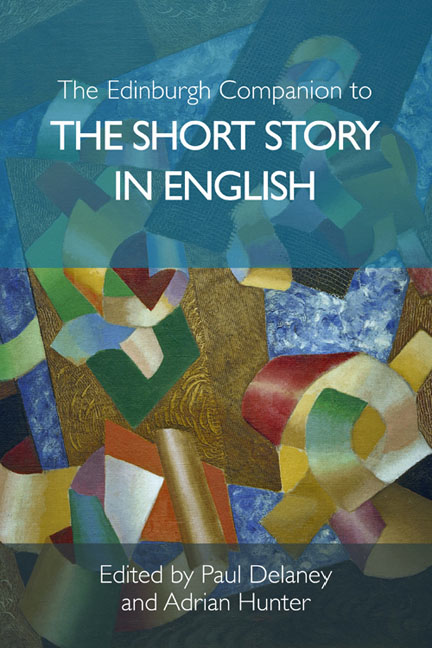Book contents
- Frontmatter
- Contents
- Acknowledgements
- Notes on Contributors
- Introduction
- Part I Historicising the Short Story
- 1 Transnationalism and the Transatlantic Short Story
- 2 The Short Story and the Professionalisation of English Studies
- 3 Impressionism and the Short Story
- 4 Writers on the Short Story: 1950–present
- Part II Publishing the Short Story
- Part III Forms of the Short Story
- Part IV Placing the Short Story
- Part V Identity and the Short Story
- Index of Short Story Titles
- General Index
4 - Writers on the Short Story: 1950–present
from Part I - Historicising the Short Story
Published online by Cambridge University Press: 18 December 2019
- Frontmatter
- Contents
- Acknowledgements
- Notes on Contributors
- Introduction
- Part I Historicising the Short Story
- 1 Transnationalism and the Transatlantic Short Story
- 2 The Short Story and the Professionalisation of English Studies
- 3 Impressionism and the Short Story
- 4 Writers on the Short Story: 1950–present
- Part II Publishing the Short Story
- Part III Forms of the Short Story
- Part IV Placing the Short Story
- Part V Identity and the Short Story
- Index of Short Story Titles
- General Index
Summary
LOOKING BACK NOSTALGICALLY on his early career, John Updike recalled a time when ‘a young family that by 1960 included four children under six’ could support a modest existence on the basis of short stories accepted by The New Yorker. The New Yorker still pays handsomely, but it is one of the last remnants of the magazine culture that, as so many commentators have observed, sustained the careers of short story writers in the first half of the twentieth century. Such figures included V. S. Pritchett, who, in later life, proclaimed the short story ‘one of the inextinguishable lost causes’:
The periodicals on which the writer can rely have almost all vanished, driven out by expensive printing, by television and the hundred and one new diversions of an extravert and leisured society. Yet the annual number of volumes published is said to have increased and if the public is painfully small, it is also addicted.
Pritchett's article, ‘The Short Story’, published in the small-circulation London Magazine, encapsulates the enduring relationship between economic vulnerability and status anxiety exhibited by short story writers in their comments on the form. From the post-war period to the present day, pronouncements about the death of the novel, the undermining of literary culture, or its atrophy, are not uncommon. The threat posed by television, in Pritchett's article, multiplies, and is finally dwarfed by the ubiquity of social media. But short story writing is conditioned by its marginality to a far greater degree than other literary genres. As Paul March-Russell notes, a dependence on magazine publication also generates a sense of the text's ephemerality, no matter how healthy the circulation figures.
Pritchett's ‘inextinguishable lost cause’ suggests a quixotic attachment to failure which, in some writers, becomes an aesthetic strategy, as they appropriate the notion of the incomplete or the inexpressible. A self-consciousness about the choice of form perpetuates a constant re-examination of its attributes, usually in contrast with the novel, and a need to identify a canonical tradition as a context for the writer's own practice. These tendencies are all evident in Pritchett's 1966 article, and recur in the critical writings of his successors, published sometimes in essays and newspaper articles, and often in the introductions to anthologies. Pritchett and his contemporary, Frank O'Connor begin a conversation that continues up until this day, as practitioners negotiate a role for the short story in contemporary culture.
- Type
- Chapter
- Information
- The Edinburgh Companion to the Short Story in English , pp. 56 - 72Publisher: Edinburgh University PressPrint publication year: 2018



